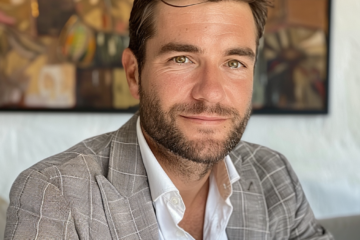To serve or not to serve? There is the question – Whether ‘tis nobler to serve unvaccinated or show them to the door to claim the need of the Divine Protection?
Now seriously. Healthcare businesses in Victoria face a legal, moral and financial dilemma of providing services to people unvaccinated against COVID-19. As of Friday, the 22nd of October, most businesses will have to ask their customers for vaccination certificates. Healthcare businesses received no guidance from the office of Dan Andrews.
The businesses are torn apart between the Hippocratic Oath and OH&S obligations to their staff. On the one hand, not serving the people who refused the vaccination or could not get one for medical reasons is a gross violation of human rights. On the other hand, to serve the “unvaccinated” is the risk to fail on the OH&S obligations to staff. e.g. staff is exposed to the COVID-19 infection if they admit the unvaccinated patients. (ufff, ‘unvaccinated’ sounds like some sort of second class citizen. I am voluntarily fully vaccinated, BTW)
Let’s sort out the easy bit first – financial. If you can afford to lose up to 30% of your clientele – go for it. Or, rather, read on.
The moral dilemma comes second. (Sorry, it happened unintentionally).
I will ask you two questions and leave the moral dilemmas up to you to think maybe over a glass or two. After all, it is in vino veritas.
Q1: Would you refuse the service to a person who is afraid to take a vaccine that did not pass the usual checks with the authorities? (Disclaimer: No matter how utterly absurd that fear is, of course.)
Q2: Would you refuse service to a person who did not vaccinate for medical reasons?
If you refuse the service to the person in Q1 and accept the person in Q2, how do you think the discrimination claim from the person in Q1 will go? Have you decided not to serve the unvaccinated one because you wanted to ‘protect your staff’ based on OH&S? Then why have you accepted the person in Q2? So, your policy has nothing to do with OH&S? Oh, I do apologise. The moral question morphed into the legal one. Did I get your attention now?
Ok, all the financial dilemmas and moral questions were answered by now. Down with those filthy ‘unvaccinated’ ones! You decided not to admit the unvaccinated people and place a notice on the window of your clinic for them to stay out! Let’s sort out the legal question.
You claim that the duty to not discriminate based on vaccination status is lesser than the duty to protect your staff from exposure to ‘unvaccinated persons’. It will take ONE unvaccinated person to be refused service to plunge you into potentially serious legal trouble. Let me explain why.
There is enough research available that says A FULLY VACCINATED PERSON WHO EXPERIENCES A BREAKTHROUGH INFECTION CAN SPREAD THE VIRUS JUST AS MUCH AS AN UNVACCINATED PERSON.(1,3)
Another study shows that people who become infected with the Delta variant are less likely to pass the virus to their close contacts if they have already had a COVID-19 vaccine than if they haven’t. (Author: good news.) But that protective effect is relatively small and dwindles alarmingly at three months after the receipt of the second shot. (Author: not good news.) (2)
Hm. So are you protecting your staff or doing some posturing while discriminating against 30% of the population that is not fully vaccinated now? That is the question that you will be asked when you are faced a discrimination case.
Why did you service unvaccinated people before the 22nd of October and refuse to do so now? Are you enforcing the Government’s vaccination policy by proxy? Are you authorised to enforce vaccination policy by proxy? Is it legal for any AHPRA registered practitioner to make policy-based clinical decisions? N.B. Refusal to accept a patient is a clinical decision in many cases. Any unvaccinated person who was refused service based on their vaccination status will blow your ‘OH&S excuse’ out of the water in 5 minutes.
That scenario makes any claim of discrimination rather strong. Is your healthcare business ready for that legal battle and media exposure that will follow?
Look out of your window. My window happened to be in St. Kilda, VIC. It is the 20th of October 2021, 6.00 p.m. We are in the ‘strict lockdown’. (Please, let me stop laughing… sorry, Dan). St. Kilda looks like Mardi Gras on steroids and no police in sight. ‘How do you “protect” your staff when they go home, I think? Are all these thousands of people vaccinated? How many of them had vaccinations three months ago or earlier aka no vaccination at all by now? Not funny! Thinking crowds and stats now – our clinic is likely to see:
- 2 out of 10 patients are not vaccinated at all.
- 2 out of 10 patients are one dose vaccinated.
- 3 out of 10 patients received their full vaccination more than 3 months ago aka as good as not vaccinated at all.
- That leaves only 3 out of 10 patients who are truly “fully” vaccinated.
Who are we going to protect by the segregation between the righteous first-class citizens and the scary filthy others?
Cynical, I sounded before, but somehow, my thoughts went back to the question of morals. Yes, those silly overcomplicated principles of right and wrong. Those pesky principles get even the most adult of us confused. At this point, I will leave you, my readers, because morals are a relatively small private matter. It is a dinner and a glass of wine time. As one of my 1 000 favourite writers – Jerome K. Jerome, said:
“People who have tried it, tell me that a clear conscience makes you very happy and contented; but a full stomach does the business quite as well, and is cheaper, and more easily obtained.”
Acknowledgements:
https://publichealth.jhu.edu/2021/new-data-on-covid-19-transmission-by-vaccinated-individuals Last accessed 20.10.21.
https://www.nature.com/articles/d41586-021-02689-y Last accessed 20.10.21.


